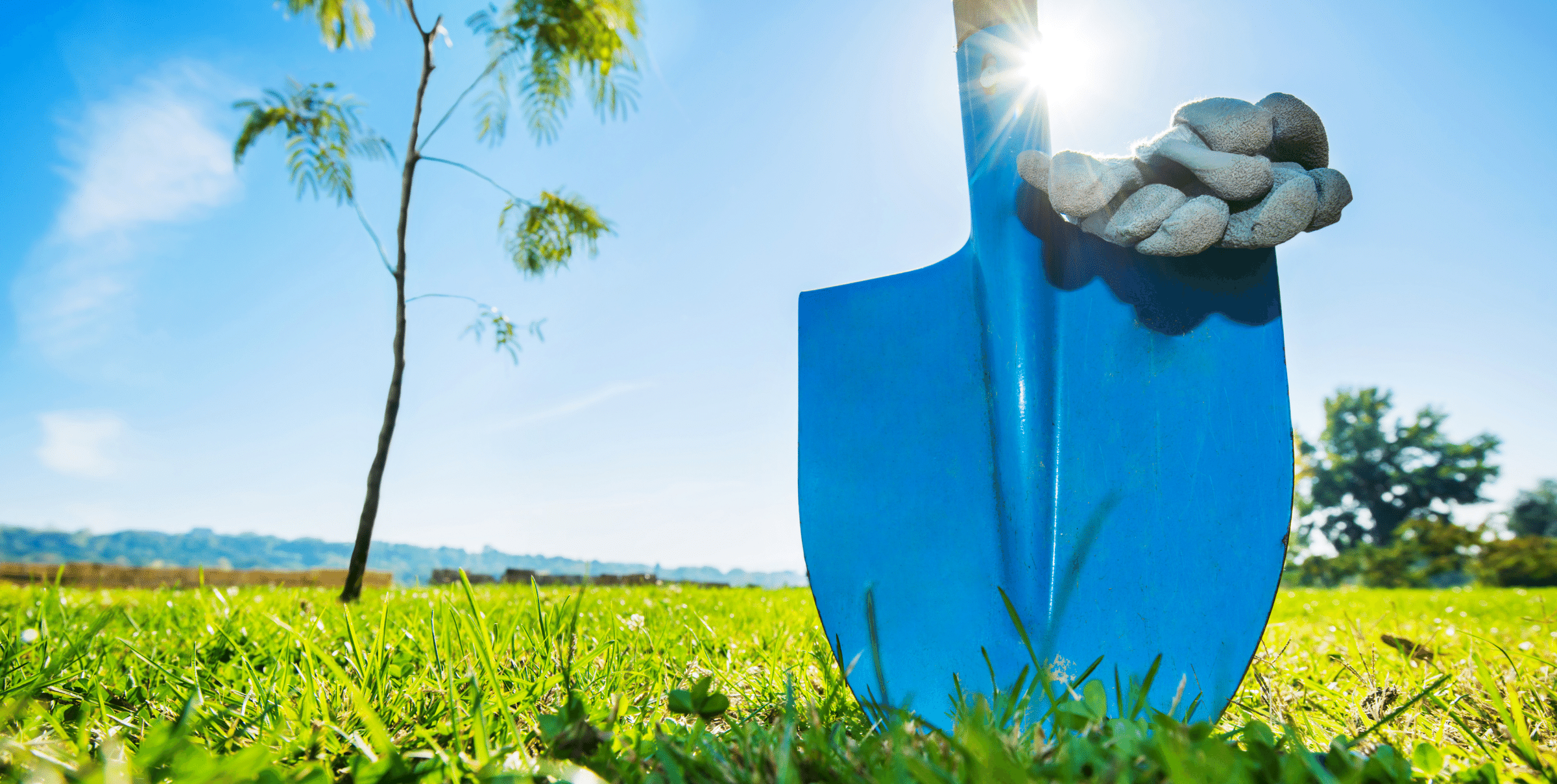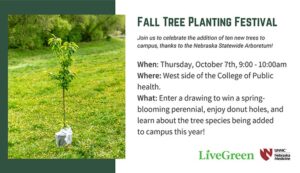Med center to plant new trees on campus


For the third year in a row, the med center has received the “Free Trees for Fall Planting” grant, a collaborative effort of the Nebraska Forest Service (NFS) and Nebraska Statewide Arboretum (NSA).
In September, the med center received 10 trees with six different tree species, including black cherry, Kentucky coffeetree, and Hastings American elms.
Fall is the best time to plant trees, because the warm soil helps new root formation and the air temperatures encourage trees to produce shoots. The new trees will be planted on Thursday, Oct. 7 from 9-10 a.m. on the west side of the UNMC College of Public Health as part of Campus Sustainability Month. Attendees at the planting can enter a drawing to win a spring-blooming perennial, enjoy donut holes and learn about the tree species being added to campus this year.
Some of the new trees will replace trees that fell due to storms this past spring and summer. Trees will be planted near Clarkson College, the Maurer Center for Public Health and the Field Club Trail – all highly populated areas. Adding trees in these locations will create more shade and add to the general tree canopy system, which helps cool down highly populated areas. Having more trees at the med center also benefits the environment, with effects that include:
- Acting as a carbon sink and cleaning the air
- Adding biodiversity and attracting different pollinators
- Reducing emissions from lawn mowing
- Cooling the streets and city by breaking up urban “heat islands”
- Preventing soil erosion and water pollution
Plus, having more natural areas on campus helps with human health and healing. In 2020, Yale Environment posted a study that observed the effects of spending two hours a week in green spaces (parks or natural environments) on human well-being. The study showed that people who spent more time in green spaces reported having better health and psychological well-being when compared to those who didn’t. Nature can relieve stress by lowering blood pressure and stress hormone levels, reducing nervous system arousal, aiding the immune system and improving mood. Find more information on the positive effects trees have on health, especially in urban areas, here.

Pingback: Campus Sustainability Month - LiveGreen